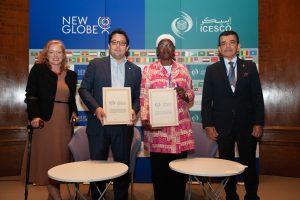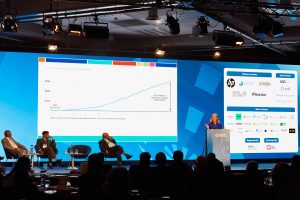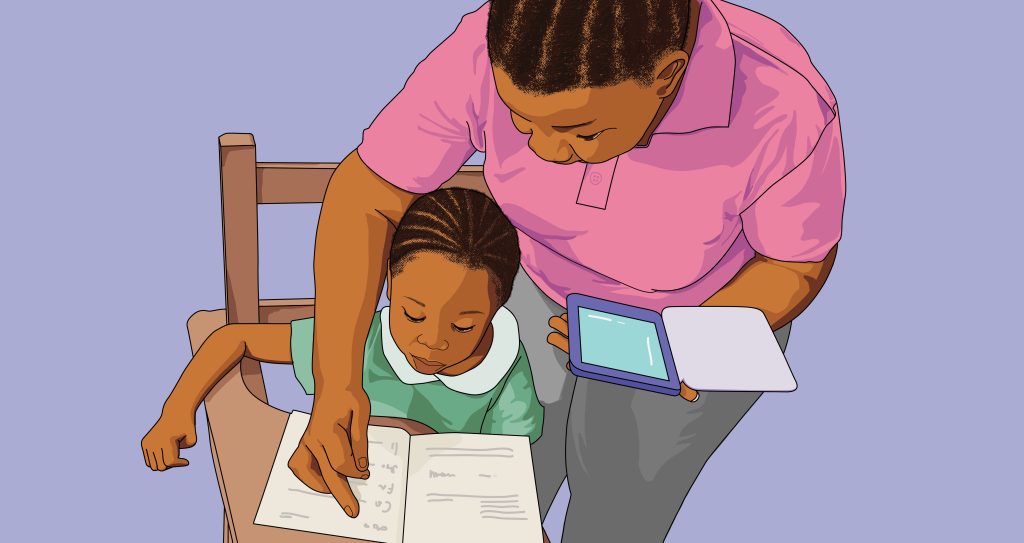International Women’s Day 2022 – A chance to challenge gender norms and recover learning losses in girls’ education.
This year’s International Women’s Day (IWD) is more important than ever for promoting female participation in education, following two years of school closures across the globe. Girls’ education has suffered disproportionately. The COVID pandemic not only caused catastrophic learning losses from being out of school, but many girls have never returned to the classroom. This year’s IWD is a chance to tackle these issues and turn education around for millions of girls around the world.
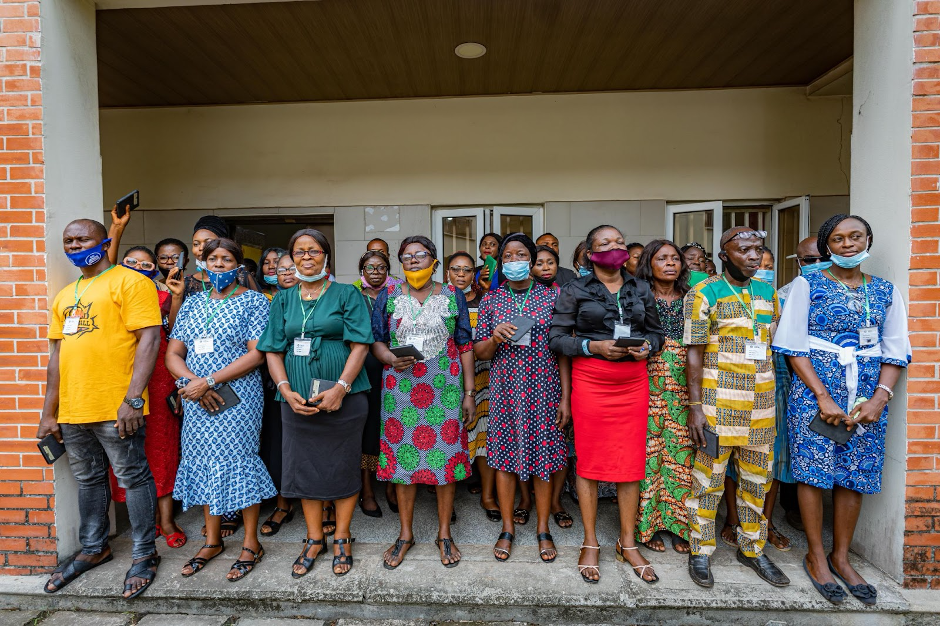
Prior to Covid-19, girls’ education was in fact experiencing rapid improvement. According to the World Bank, girls were staying in school longer and learning more than at any other time, and in some cases outperforming boys in terms of rates of enrollment and learning outcomes. Then came Covid. School closures threatened to reverse any progress made, with girls particularly vulnerable to the effects of the pandemic on their education, due to harmful gender norms. Dropping out of school is a particular worry for young girls, with many being exploited as child labor or held back to to help around the household. In Bangladesh, The World Bank reported that gender norms around household responsibilities have a significant impact on girls’ education with only 52% of girls enrolled completing secondary school, compared to 65% of boys. These norms were exacerbated during the pandemic with many girls dropping studies to help with household chores – 53% of girls reported they had spent less time on education than prior to the lockdown and 94% reported spending more time working around the house and helping with childcare.
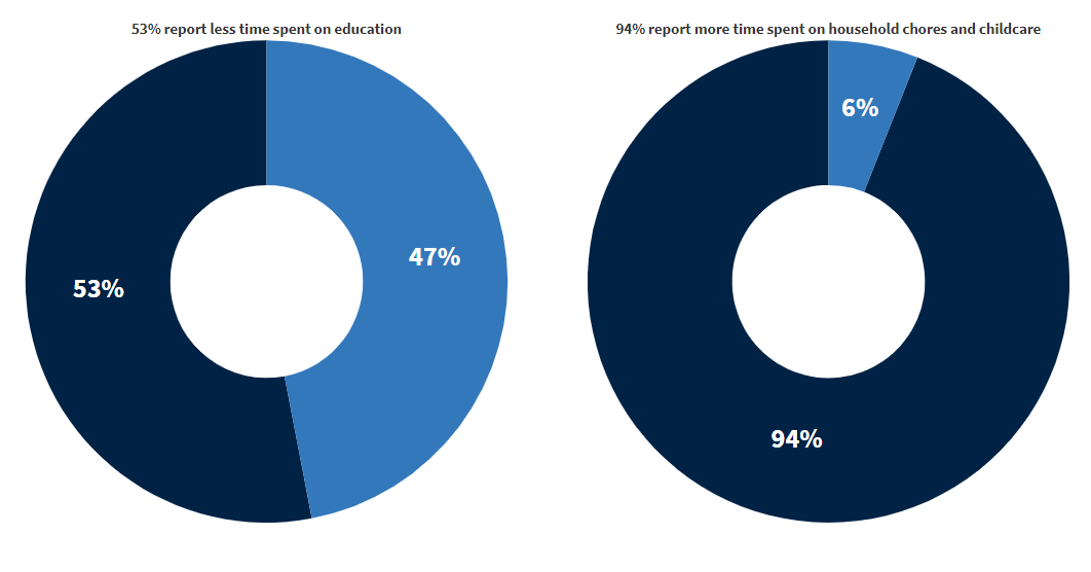
Even as it recedes, the impact of Covid on girls is far from over. During the pandemic 1.5 billion children, including 767 million girls, lost out on education at the peak of lockdown. UNESCO estimates that 11 million girls may drop out of education altogether as a result.
In 2019 The World Bank set a goal of halving the rate of learning poverty by 2030 – defining learning poverty as the percentage of 10-year-olds who cannot read and understand a simple story. That goal is now under serious threat. A World Bank paper highlights the economic impact this could have. It calculated that between $6,472 and $25,680 USD in lifetime earnings may be lost to a typical student, with already marginalized groups, like girls, ethnic minorities, and persons with disabilities, more adversely affected. Learning loss makes the poor poorer still, with that impact extending to their communities and societies.
If progress on girls’ education is not to be entirely wiped away by the pandemic, the breakdown of barriers to learning must continue, and intensify. International Women’s Day celebrations, held each year on 8th March, aim to highlight women’s achievement in society, raise awareness against the biases they may face, and prompt action in promoting equality. The theme for 2022 is ‘Break the Bias’ – an encouragement to challenge the cultural frameworks preventing women from progressing in society.
In education, that means keeping girls in school and reiterating the long term benefits of education for young girls, and its global impact. In 2021 The World Bank reported that on average returns to schooling – the increase in lifetime earnings associated with additional education – are higher for girls than for boys. For an additional year of schooling, women see an increase of 12% on the wages compared to 10% for men. Girls’ education also strengthens economies. The Malala Foundation estimates that educating girls and increasing the number of women in the workforce could potentially add $12 Trillion USD to global growth.
So, what must be done to recover the learning losses caused by the pandemic? The World Bank suggests that data is key. Head of Education Jaime Saavedra, highlighted the success of data in the EdoBEST program, in Nigeria’s Edo State.
EdoBEST mitigated the impact of lockdowns through a tailored program of home learning, gathered from data about children’s attainment. He said: “Edo has been very fast at adapting to the reality of COVID-19. EdoBEST@home incorporated digital self-study packets distributed via WhatsApp, interactive quizzes, digital story books and lesson guides delivered to parents are all interesting innovations.” – Aisosa.
Support from the World Bank of $75m over 4 years, through the International Development Association, allowed EdoBEST to fast-track into digital learning and adapt well to remote teaching.
However, reducing the impact of school closures isn’t the only necessity for helping girl’s education – government leadership is also key.
The President of Liberia, George Weah, stressed that
“Because of the inherent disparities in our society against women and girls, there is also an urgent need to develop and strengthen mechanisms for their full protection and empowerment, to ensure that their rights are protected and their livelihoods are sustained.”
NewGlobe supports education systems using an approach that has gender parity built into its design. This includes using gender-sensitive artwork and stories in textbooks, ensuring equal visibility of male and female characters, particularly representing female characters in leading or unconventional roles. The necessity of female role models expands further into the classroom with gender-sensitive school management, ensuring girls are given school leadership roles through appointments of Head Girls and Prefects.
It is also important for girls to be inspired by female teachers and female principals. Improving teachers’ professional development is a core part of NewGlobe’s mission and a data-driven approach provides teachers and school leaders with tools to learn and adapt their skills.
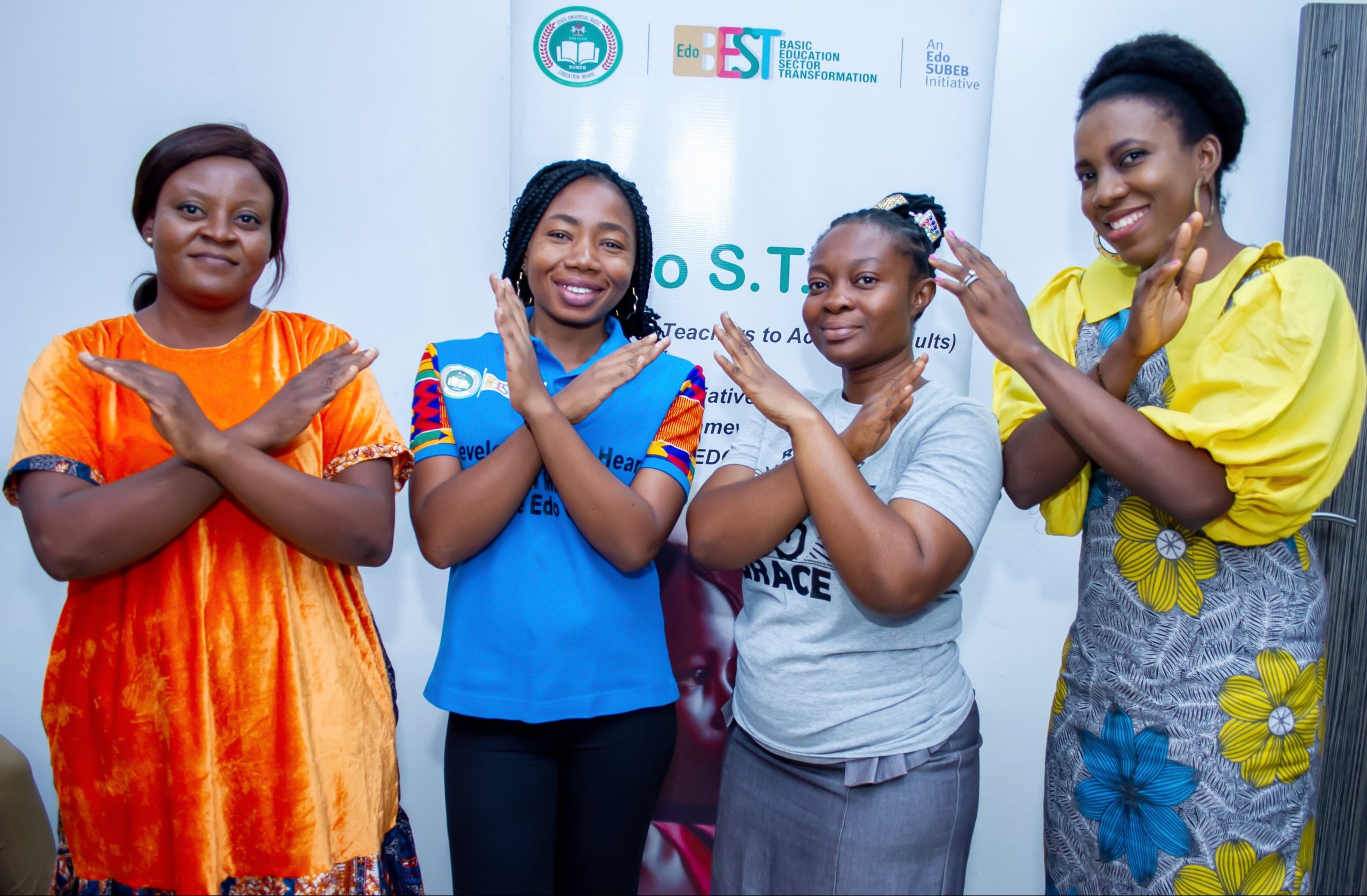
Every teacher in a NewGlobe-supported program receives bespoke training. The EdoBEST program is currently training 2,000 primary and secondary school teachers, as it expands into rural areas. Live lesson observations are conducted and used to provide teachers with practical insights on how to make their lessons more engaging for all pupils. Teachers are trained to call on both boys and girls in the classroom, as fewer girls than boys usually tend to volunteer in class. Teachers are trained to practice more cold calling to ensure equal participation and boost confidence in girls.
Mercy Wilson, a teacher in a NewGlobe-supported school in Liberia, says that “Women’s empowerment is key to breaking the bias that exists between women and men”, whilst Principal at the school, Janet Tamba, adds “An educated woman is an empowered woman.”
By empowering young girls and breaking down the social barriers, schools supported by NewGlobe have seen impressive results in their learning. In Liberia, NewGlobe-supported schools in the Government’s LEAP program led the way in allowing and encouraging pregnant girls to stay in school and actively encourage young first-time mothers to return to classrooms, removing a stigma which keeps many aspiring female pupils out of education.
As a result of the Ministry of Education program, 5th-grade girls’ average performance on reading fluency increased by more than 27 words per minute, now outperforming the performance of boys, whom they once lagged behind.
There are similar changes and positive results in Nigeria, with the EdoBEST program reporting that Primary 3 students scored six percentage points higher in math and seven percentage points higher in english literacy – an increase in results driven almost entirely by girls, who outperformed boys in EdoBEST schools and both boys and girls in schools outside the program. The EKOEXCEL program, also in Nigeria, reports pupils advancing twice as fast in numeracy and three times as fast in literacy as their counterparts in other schools – results built on the foundation of EKOEXCEL girls being 8% more likely to attend school than girls in classrooms outside the program. The state and national governments transforming their public education programs with the support of NewGlobe recognise that both individuals and their communities can only benefit from improved education outcomes for women and girls.
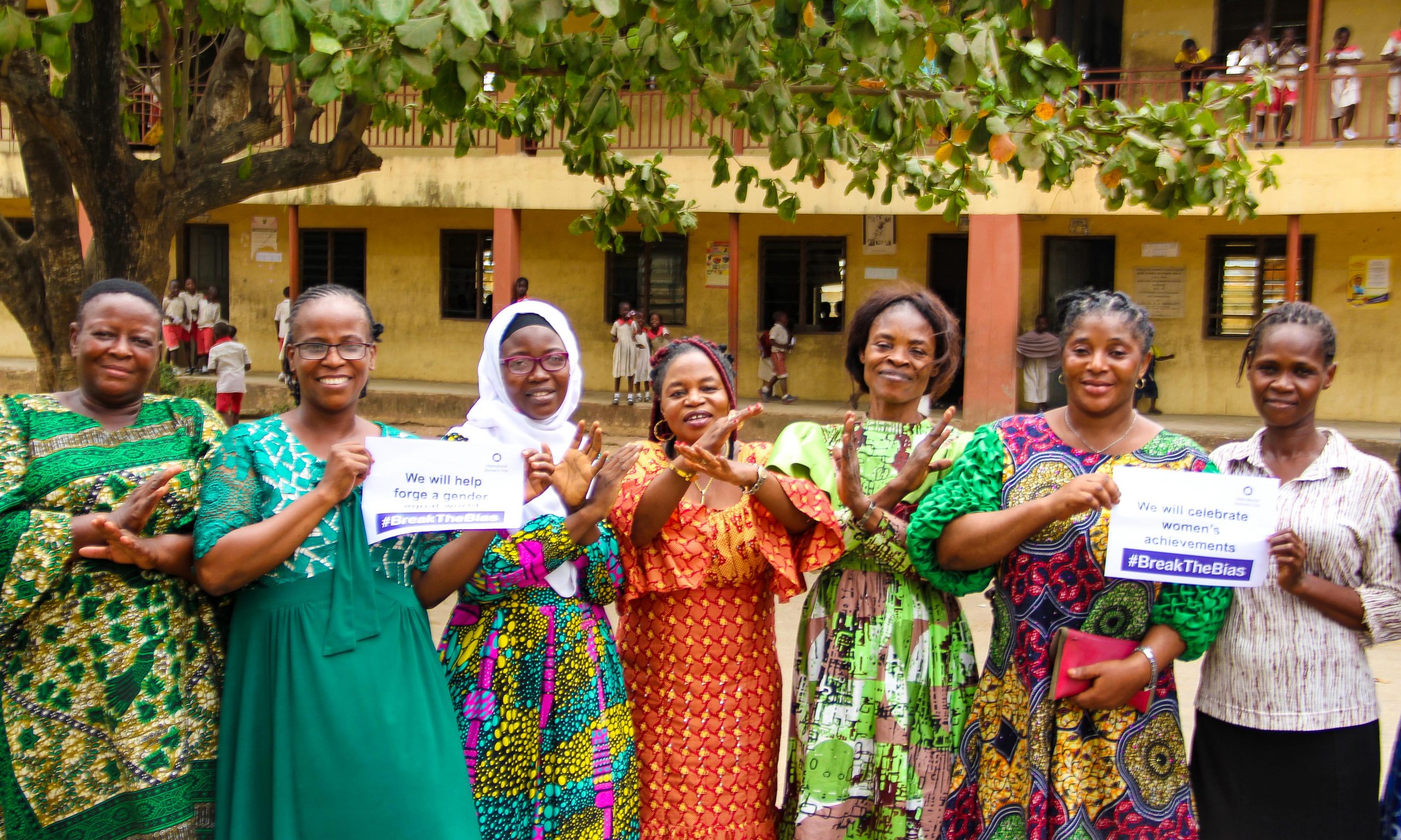
By supporting political and community leaders determined to ensure girls have the same opportunities to learn and thrive as boys, NewGlobe is helping to break the bias and empower girls this International Women’s Day.
